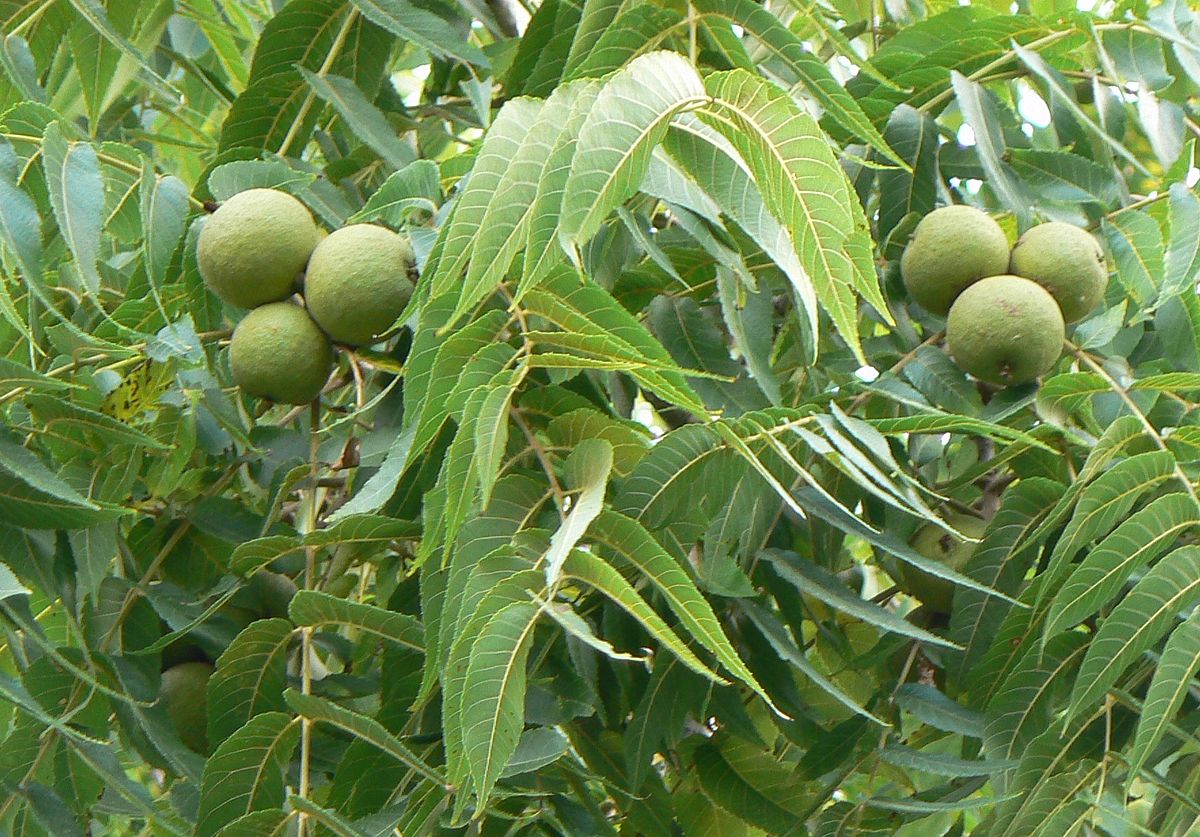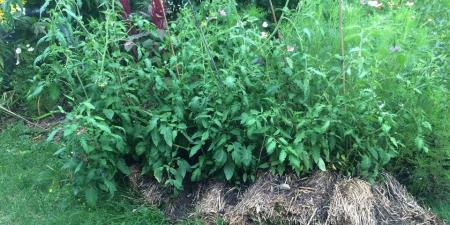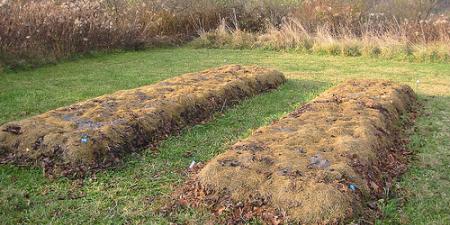
Did you know that many nut trees produce a substance called juglone that is toxic to some other plants?
Black walnuts, in particular produce enough juglone to be toxic to some vegetable plants including: tomatoes, potatoes, peppers, eggplant, as well as asparagus, cabbage, peas and rhubarb. Unfortunately, plants will grow along well, and then as the season progresses start dying back. If you are not aware of the existence of, or effects of the black walnut tree, you may be quite perplexed as to why your plants are dying!
Generally anything under the radius of the canopy of the tree can be affected; this is similar sizing to the roots where the majority of the juglone is produced.
Some other vegetables will grow quite well under a walnut tree if they get enough water and sunlight. These vegetables include: squash, melons, root crops (carrots, beets, parsnips, lima and snap beans, onions, garlic, leeks, parsnip, carrots, cauliflower, soybeans, parsley, and Jerusalem artichoke.
Other solutions! Some of our community gardens have had good success with two methods when black walnuts are present in their gardens
Raised Beds: By building your own soil, you can create an environment that is resistant to the juglone. It is important to put an impenetrable layer at the bottom of the raised beds, so that the soil is separated from the effects of the black walnut. There are hundreds of designs for raised beds, explore and find one that works for you! Here is one example to get your creative juices flowing
Lasagna Gardening: By layering nitrogen rich layers such as straw, leaves, manure and compost, you can create your own soil above the existing ground. This can be handy for avoiding digging up sod, and particularly, if a thick layer that blocks roots is at the bottom, has shown some success in growing vegetables susceptible to juglone in local community gardens.
 Straw Bale Gardening: One local community garden has been battling Black Walnut trees for years, this season, they tried out Straw Bale Gardening and are having great success with growing tomatoes, squash, and more in them!
Straw Bale Gardening: One local community garden has been battling Black Walnut trees for years, this season, they tried out Straw Bale Gardening and are having great success with growing tomatoes, squash, and more in them! If you do have a black walnut, attempt to rake up the leaves and fruits in the fall, they can add further juglone to the soil in your yard as the decompose.
Other interesting tips:
Plant vegetables in raised beds with lots of finished compost that is without black walnut nuts and leaves. The vegetables will thrive if they have enough light to grow.
Increase the bioactivity of your soil by adding lots of finished compost, mulch, and other amendments that encourage earthworms. Juglone breaks down rapidly in bioactive soils.
Add a strip of mushroom mycelium between the black walnut and your vegetable garden. Mushroom mycelium breaks down juglone in the soil rapidly.
Increase soil microorganisms under walnut trees. Soil bacteria like pseudomonas can consume juglone and decrease it’s presence in the soil, protecting nearby plants. Avoid sterile soil or chemical fertilizers that may harm soil bacteria. See this article from the University of Colorado for more information on this.
Plant a buffer strip of juglone resistant plants between the black walnut and your juglone sensitive plants.
Resources:
What can you grow under black walnuts? https://joybileefarm.com/plants-will-grow-near-black-walnut-trees/
Lasagna Gardens: https://www.holesonline.com/blog/2014/10/20/a-lasagna-garden-for-the-lazy-gardener










